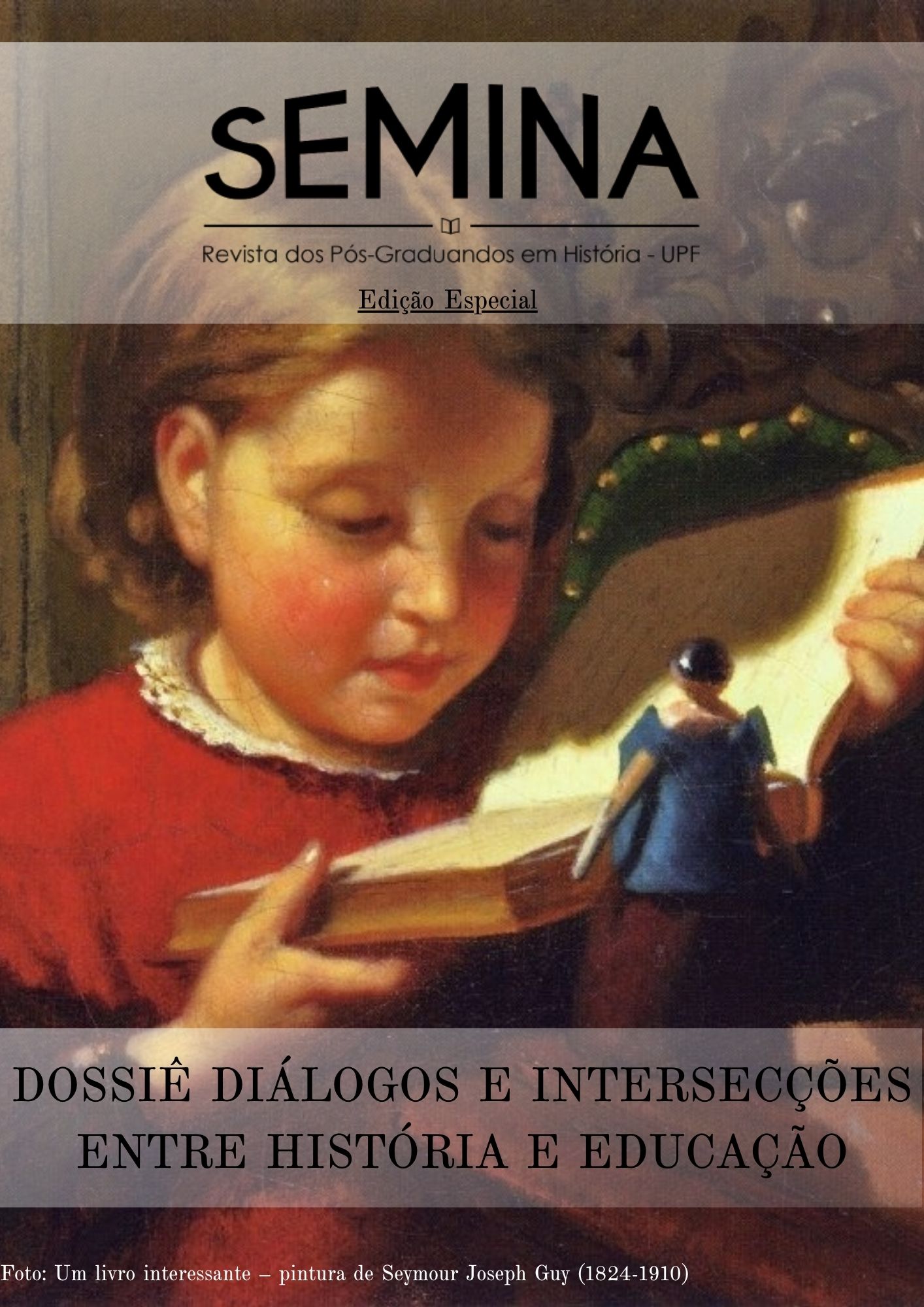Memory in Nietzshe:
the light of sacred dance history through terreiro communities
DOI:
https://doi.org/10.5335/srph.v21i2.13746Keywords:
Memory, Nietzsche, History, Body, terreiroAbstract
This article aims to bring sacred dance in Nietzsche's memory and history through communities of terreiros, understood as bodily expressions represented through memory with regard to dance, the body and the touches of Orixá Oxum, as well as the action of remembering, bringing the assumption that memory is also an instance of creation and existence. In addition, to point out how it is possible to think of dance and the body as constitutive elements of Nietzsche's dance and philosophy. Packed by the problem: how does the sacred dance in the candomblé terreiros of the ketu/Nagô nation reflect the moving memory brought by Nietzsche? With this we propose a discussion of Nietzsche's grounded theories that helps us to situate memory in movement through the events that results in the social relations of groups contributed through history, contacts, memories, expressions and memories. As a research methodology, we will search the collection using Nietzsche's theoretical framework and his Dionysian and Apollonian conceptions present in Nietzsche's work: Thus spoke Zarathustra, to think about the relationships of body and dance in the construction of a life of art and the overcoming of man and the destruction-creation relationship between the Apollonian and the Dionysian, discussing the image of the body and dance as a movement of overcoming, opening a perspective on life and the deepest need for affirmation that Candomblé brings together values of different African ethnicities , as a form of resistance, imbued with the desire to teach human beings the meaning of being. In this way, the memories contained in the dance in their bodies incorporated by the Orixás, transmit their mythical narratives, being able to be applied in the spiritual force that contributes to the resistance and survival in the terreiros of Candomblé, for its religious and community (re)signification. even in the face of suffering related to racism and religious prejudice.
Downloads
References
BAÇAN, L. P. Dicionário dos rituais afro-brasileiros. Londrina: Copyright, 2012.
COOSARD-BINON, G. Olóòrisá. São Paulo: Ágora, 1981.
GASPARETTO JUNIOR, A. Origem dos escravos africanos. 2009. Disponível em: http://www.historiabrasileira.com/brasil-colonia/origem-dos-escravos-africanos/. Acesso em: 22 jun. 2021.
NIETZSCHE, Friedrich Wilhelm. Obras incompletas. In: Obras incompletas. 1978. p. 416-416.
NIETZSCHE, F.W. O Nascimento da Tragédia. Trad. J. Guinsburg. São Paulo: Companhia das Letras, 1992.
NIETZSCHE, F. W. Crepúsculo dos ídolos. Porto: Ed.70, 1985.
NIETZSCHE, F. W. Genealogia da Moral. Trad. de Paulo César de Souza. São Paulo: Companhi
NIETZSCHE, F. W. O nascimento da tragédia ou helenismo e pessimismo. São Paulo: Companhia das Letras, 2007a.
---------------. O livro do filosofo. São Paulo, SP: Ed. Escala, 2007b.
---------------. Assim falou Zaratustra. Rio de Janeiro, RJ: Civilização brasileira, 1997. a das Letras, 1999.
PRANDI, R.. Mitologia dos Orixás. São Paulo: Companhia das Letras, 2001.
ROCHA, Raquel Rodrigues. Nietzsche e a dança: o corpo como obra de arte. Ed: Lampejo, 2019.
SANTIAGO GUERVÓS, L. H. Nos limites da linguagem; Nietzsche a expressão vital da dança. In: Cadernos Nietzsche, 2003, nº14.
STRATHERN, Paul. Nietzsche em 90 minutos. Editora Schwarcz-Companhia das Letras, 2007.
SILVA. A. R. da. Elementos para uma comunicação pósmidiática. São Paulo: Unisinos, 2003.
VERGER, P. Orixás – Deuses Iorubás na África e no Novo Mundo. Salvador: Corrupio, 1997.
Downloads
Published
Issue
Section
License
Autores que publicam nesta revista concordam com os seguintes termos:
- Autores mantêm os direitos autorais e concedem à revista o direito de primeira publicação, com o trabalho simultaneamente licenciado sob a Licença Creative Commons Atribuição 4.0 Internacional – CC-BY que permitindo o compartilhamento do trabalho com reconhecimento da autoria do trabalho e publicação inicial nesta revista.
- Autores têm autorização para assumir contratos adicionais separadamente, para distribuição não-exclusiva da versão do trabalho publicada nesta revista (ex.: publicar em repositório institucional ou como capítulo de livro), com reconhecimento de autoria e publicação inicial nesta revista.
- Autores têm permissão e são estimulados a publicar e distribuir seu trabalho online (ex.: em repositórios institucionais ou na sua página pessoal), a qualquer ponto antes ou durante o processo editorial, já que isso pode gerar alterações produtivas, bem como aumentar o impacto e a citação do trabalho publicado, de acordo ainda com a democratização científica prevista pela Ciência Aberta.





